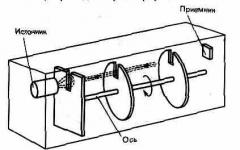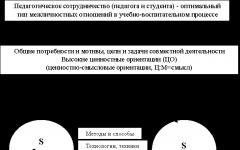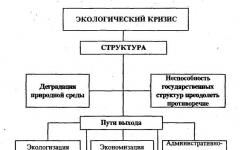Russian poet David Samuilovich Samoilov ( real surname Kaufman) was born on June 1, 1920 in Moscow in the family of the doctor Samuil Abramovich Kaufman. The poet took the pseudonym after the war in memory of his father.
In 1938, David Samoilov graduated from high school and entered the Moscow Institute of Philosophy, History and Literature (MIFLI) - an association of humanitarian faculties, separated from the Moscow State University. MIFLI was taught by the best specialists of that time - Sergei Radtsig, Nikolai Gudziy, Dmitry Blagoy, Dmitry Ushakov, Leonid Timofeev and others. During his studies, Samoilov made friends with poets who soon began to be called representatives of the poetry of the "military generation" - Mikhail Kulchitsky, Pavel Kogan, Boris Slutsky, Sergey Narovchatov.
Samoilov dedicated the poem "Five" to them, in which he wrote: "There lived five poets / In the pre-war spring, / Unknown, unsung, / Who wrote about the war." Poets Nikolai Glazkov, Nikolai Otrada, Mikhail Lukonin were also creatively close to him. Together with his friends, Samoilov attended the unofficial creative seminar of the poet Ilya Selvinsky, who achieved the publication of his students' poems in the magazine October (1941, no. 3). In the general collection, Samoilov published the poem "The Hunt for the Mammoth", in which he gave a poetic picture of the movement of mankind along the path of progress.
In 1941 Samoilov was mobilized as a student to dig trenches. On the labor front, the poet fell ill, was evacuated to Ashgabat, where he entered the military infantry school, after which in 1942 he was sent to the Volkhov front near Tikhvin.
In 1943 Samoilov was wounded, his life was saved by his friend, an Altai peasant Semyon Kosov, about whom the poet wrote the poem "Semyon Andreich" in 1946.
After the hospital, David Samoilov returned to the front and became a scout. In parts of the 1st Belorussian Front he liberated Poland and Germany; finished the war in Berlin. He was awarded the Order of the Red Star, medals.
During the war years Samoilov did not write poetry - with the exception of poetic satire on Hitler and poems about the successful soldier Foma Smyslov, which he composed for the garrison newspaper and signed "Semyon Shilo".
The first post-war work "Poems about the New City" was published in 1948 in the magazine "Banner". Samoilov considered it necessary that the impressions of life "settle" in his soul, before being embodied in poetry.
The temporary distance for understanding the war, according to Samoilov, is natural: "And all this sunk into me / And only then I woke up in me! .." ("The Forties").
In the poem "Neighboring Countries. Notes in Verse" (1954-1959) Samoilov summed up the most important stage in the biography of his generation: "My generation has waved away / Years of wanderings and years of study ... / Yes, a circular one is drunk to the bottom, / A full cup of youthful hops. / The world war has died down - / Our, bloody, evil, the second. / Well, the third will not be ours! .. "
Regular publications of his poems in periodicals began in 1955. Prior to that, Samoilov worked as a professional translator of poetry and as a screenwriter on the radio.
In 1958, David Samoilov published his first poetry book "Near Countries", the lyrical heroes of which were a front-line soldier ("Semyon Andreich", "I feel sorry for those who die at home ...", etc.) and a child ("Circus", "Cinderella "," Fairy Tale ", etc.). The artistic center of the book was "Poems about Tsar Ivan", in which for the first time the historicism inherent in Samoilov was fully manifested. Samoilov reflected on the role of man in history in the poem "Dry Flame" (1963), the protagonist of which was an associate of Peter the Great, Prince Alexander Menshikov. The roll-over of historical epochs also occurs in David Samoilov's poem "The Last Holidays" (1972), in which lyric hero travels across Poland and Germany from different times together with the 16th century Polish sculptor Wit Squash.
Defining his poetic sense of self, Samoilov wrote: "All the time we had a sense of the environment, even a generation. Even the term we had before the war:" generation of the 40th year. " went to the soldiers / And the humanists in the forty-fifth. " great sorrow... The poetic "calling card" of this generation has become one of the most famous poems Samoilov's "The Forties" (1961).
Since 1967, David Samoilov has lived in the village of Opalikha near Moscow. The poet did not participate in the semi-official literary life, but his circle of occupations was as wide as his circle of contacts. Samoilov was friends with many of his outstanding contemporaries - Fazil Iskander, Yuri Levitansky, Bulat Okudzhava, Nikolai Lyubimov, Zinovy Gerdt, Yuli Kim, etc. Despite eye disease, the poet studied in the historical archive, working on a play about 1917; published the poetry "Book on Russian Rhyme", in which he considered the problems of versification from the folk epic to the present; he was engaged in poetic translations from Polish, Czech, Hungarian and other languages.
In 1974, the poet's book "Wave and Stone" was published, which critics called Samoilov's most Pushkin book - not only by the number of mentions of Pushkin, but, most importantly, by his poetic attitude. Yevgeny Yevtushenko, in a kind of verse review of this book, wrote: "And I read" Wave and Stone "/ where wisdom is above a generation. / I feel both guilt and flame / forgotten flame of worship."
In 1976 David Samoilov settled in the Estonian seaside town of Pärnu. New impressions were reflected in the poems that compiled the collections "News" (1978), "Tooming Street", "The Bay", "Lines of the Hand" (1981).
Since 1962, David Samoilovich kept a diary, many entries from which served as the basis for prose, published after his death as a separate book "Memoirs" (1995).
The writer was awarded the USSR State Prize (1988). His poems have been translated into many European languages.
David Samoilovich Samoilov died on February 23, 1990 in Tallinn, on anniversary party Boris Pasternak, barely completing his speech. He was buried in Pärnu (Estonia) at the Forest Cemetery.
In June 2006, a memorial plaque was unveiled in Moscow to the front-line poet David Samoilov. It is located on the house where he lived for more than 40 years - at the intersection of Obraztsova Street and Fight Square.
1920 in Moscow. Mom's name was Cecilia Izrailevna. Father Samuil Abramovich Kaufman worked as the chief venereologist of the Moscow region, participated in the First World War and Civil War; in the Great Patriotic War he worked in the rear hospital.
Childhood memories
The images of parents by the future poet will be vividly described in the poems "The Courtyard of My Childhood" and "Departure", and the author truly captured childhood memories in his autobiographical works "Home", "Dreams of Father", "Apartment", "From the Diary of the Eighth Grade".
The biography of David Samoilov, a talented poet, is quite commonplace. Born ... Studied ... Composed ... David made friends with poetry since childhood, the historical novelist and family friend had a great influence on his development as a creative person
Biography of David Samoilov
The future poet graduated from school in 1938 and became a student at the Moscow Institute of Philosophy, History and Literature, where the best scientists of that time taught: L.I. Timofeev, N.K. Gudziy, Yu.M. Sokolov, S.I. D. D. Blagoy.
During his studies, David Samoilov (photo of the war period) made friends with poets, later called representatives of the poetry of the military generation of the 40s: Sergei Narovchatov, Mikhail Kulchitsky, Pavel Kogan. The prophetic poem "Five" was dedicated to them, and the fifth was the author himself.

The death of some of them, as if predicted in the work, became a great grief for Samoilov. The author was also creatively close with N. Glazkov, M. Lukonin - colleagues at the unofficial creative seminar of the poet I. Selvinsky, who achieved publication of the works of his students in the magazine "October". It happened in 1941; Samoilov's poem, published in a general collection, describing a picture of human progress and signed by the pseudonym David Kaufman (in honor of his father), was called "The Hunt for the Mammoth."
War years
In the Finnish war, Samoilov David Samuilovich, whose biography has always been associated with poetry, wanted to go to the front as a volunteer, but did not pass for health reasons. In the Great Patriotic War, he did not pass into the ranks of the defenders of the Motherland due to his age: he was sent to dig trenches near Vyazma. In the first months of the war, the poet wrote down unpublished and important works for himself in a notebook (about thirty poems, three poetic translations and one comedy). At that time, David fell ill and was evacuated to Ashgabat, where he began his studies at the evening pedagogical institute. After that, there was the Gomel military infantry school, in which David, after spending a couple of months, was sent to Tikhvin, to the Volkhov front. Subsequently, the author wrote that the war revealed to him the main thing - the feeling of the people.
Made it to Berlin
Biography of David Samoilov has the fact of injury, received in 1943. The writer is obliged to save his life to his friend - the Altai peasant SA Kosov, to whom the poem "Semyon Andreevich" was later dedicated. After being discharged from the hospital, he returned to the front. As a scout, as part of the First Belorussian Front, he liberated Germany, Poland, and reached Berlin. The most important stages in the biography of the generation of the war years David Samoilov emphasized in the poem “Neighboring Countries. Notes in verse ".

During the war years, David Samoilovich Samoilov, whose biography arouses sincere interest among fans of his work, did not write poetic lines, except for poems about Thomas Smyslov, a successful soldier, and poetic satire on Hitler, published in the garrison newspaper under the pseudonym Semyon Shilo. The first work published in the Znamya magazine after the war (in 1948) was Poems about the New City. Regular publications of his works in periodicals began to appear in the press since 1955. Prior to this period, Samoilov worked as a professional translator and screenwriter on the radio.
Samoilov's creativity
Biography of David Samoilov has always been associated with creativity. In 1958, the debut poetry book "Neighboring Countries" was published, the key heroes of which were the front-line soldier in the works "I feel sorry for those who die at home ..." "Poems about Tsar Ivan". This poetic cycle harmoniously combined the life experience of the poet and the historical experience of Russia with his traditions of Pushkin's historicism.

The theme of history and the role of man in it continued in dramatic scenes"Dry Flame" (1963) and the poem "Pestel, Poet and Anna", written in 1965. Historical eras echo in the poem "The Last Holidays" published in 1972, which tells about the journey of the protagonist together with the 16th century sculptor Squash Wit across Poland and Germany from different historical periods.
The fame of David Samoilov
Samoilov's name became known to a wide range of readers after the publication in 1970 of the collection of poetry "Days", the best poems of the author were combined in the book "Equinox". David Samoilov, a biography whose poetry is interesting to the current generation, did not take part in the semi-official literary life, which in no way isolated him from public life, after all, Samoilov's social circle and circle of occupations were quite wide.
In 1967, the writer settled near Moscow, in the village of Opalikha. Biography of David Samoilov is associated with many famous names: Julius Kim, Yuri Levitansky, Zinovy Gerdt, Bulat Okudzhava, Fazil Iskander, with whom the poet maintained close friendship.
Versatility of David Samoilov
An eye disease did not interfere with his work in the historical archive, writing a work about 1917. In 1973, Samoilov published "The Book of Russian Rhyme", in 1974 the book "Wave and Stone" was published, which was called by the critics of Pushkin itself - according to the poetic outlook and frequency of references to the great poet.

David Samuilovich actively and in large volumes translated the poems of Bulgarian, Spanish, Armenian, German, Lithuanian, Polish, Turkish, French, Serbian, Estonian poets, took part in the creation of a number of performances at the Taganka Theater, Yermolova Theater, Sovremennik, wrote for theater and cinema songs. In 1988 it became the Soviet Union.
Estonian period of the writer's life
Poet David Samoilov, whose biography is associated with wartime, in life was an easy and sociable person.

In 1976 he settled on Tooming Street, in the Estonian seaside town of Pärnu, which he loved very much. The beauty of the seaside park, the intricate old streets, the incredible beauty of the bay inspired the poet to work. It was in Estonia, a country where the author felt at ease and calm, that six of his poetry collections were published, one of which was published in Estonian. The poet often visited the local gymnasium and neighboring schools, loved to talk with teachers and students about Russian literature, read his works aloud. The communication was informal and always left a deep impression in the hearts of the younger generation.
Samoilov never put dates for his poems. In 1962 he began to keep a diary; notes from it served as the basis for prose, published as a separate book "Memoirs" after his death, in 1995. The poet's sparkling brilliant humor gave rise to numerous epigrams, parodies, and a playful epistolary novel.
Contribution to literature: David Samoilov
Death overtook the writer in Pärnu on February 23, 1990, where he was buried. About David Samuilovich Samoilov in 2010 a documentary film "The Boys of the Power" was shot.

David Samoilov is considered one of the best representatives of the poetry of the twentieth century with a large supply of creative synthesis of deep culture, the presence of freshness of thought, harmoniously combined with elegant humor. His poetic perception of the world is based on a deep sense of history and cultural traditions; the author also perceives modernity as history. Only he thinks it over, lives, withstands for some time (sometimes even several years) in order for the subjective opinion and the time experienced to move back a little and the event acquired the properties of a historical object, external relief and internal structure. This can explain that the first book of the poet was first published as much as thirteen years after the end of the war. Years also pass between the appearance of other books, confirming that David Samoilov preferred its quality to the quantity of published material.
Biography
David Samoilov (real name - David Samuylovich Kaufman; June 1, 1920, Moscow - February 23, 1990, Tallinn) - Russian Soviet poet, translator.
David Samoilov is a poet of the front generation. Like many of his peers, he left the student's bench for the front.
Born into a Jewish family. Father - a famous doctor, chief venereologist of the Moscow region Samuil Abramovich Kaufman (1892-1957); mother - Cecilia Izrailevna Kaufman (1895-1986).
In 1938-1941 he studied at MIFLI (Moscow Institute of Philosophy, Literature and History). At the beginning of the Finnish war Samoilov wanted to go to the front as a volunteer, but was not fit for health reasons. At the beginning of World War II, he was sent to the labor front - to dig trenches near Vyazma. There David Samoilov fell ill, was evacuated to Samarkand, studied at the Evening Pedagogical Institute. Soon he entered the military infantry school, which he did not graduate from. In 1942 he was sent to the Volkhov front near Tikhvin. March 23, 1943 near the station. Mga was seriously wounded in his left arm by a mine fragment. After recovering, from March 1944 he continued to serve in the 3rd separate motor reconnaissance company of the reconnaissance department of the headquarters of the 1st Belorussian Front.
For courage and heroism shown during the Great Patriotic War, he was awarded the Order of the Red Star and the Medal for Military Merit.
He began to publish in 1941. After the war he translated a lot from Hungarian, Lithuanian, Polish, Czech, languages of the peoples of the USSR, etc.
Since 1974 he lived in Pärnu (Estonian SSR), at st. Toominga, 4. David Samoilov died on 23 February 1990 in Tallinn. He was buried in Pärnu (Estonia) at the Forest Cemetery.
Creation
The first book of poems "Near Countries" was published in 1958. Then poetic collections of lyric and philosophical poems "The Second Pass" (1962), "Days" (1970), "Wave and Stone" (1974), "News" (1978), "The Bay" (1981) , "Voices Behind the Hills" (1985) - about the war years, the modern generation, about the purpose of art, about historical subjects.
In Samoilov's poems "behind the simplicity of semantics and syntax, behind the focus on the Russian classics, lies the poet's tragic attitude, his striving for justice and human freedom."
One of the first public speaking DS Samoilova in front of a large audience took place in the Central Lecture Hall of Kharkov in 1960. The organizer of this performance was a friend of the poet, the Kharkov literary critic L. Ya. Livshits.
He is the author of the poem "Song of the Hussar" ("When we were in the war ..."), which was music by the bard Viktor Stolyarov in the early 1980s. Samoilov-Stolyarov's "Hussar Song" became very popular among the Cossacks of the Kuban at the beginning of the 21st century. [Source not specified 801 days]
Released a humorous prose collection "In the Circle of Yourself". He wrote works on versification.
A family
Since 1946 he was married to art critic Olga Lazarevna Fogelson (1924-1977), daughter of the famous Soviet cardiologist L.I. Fogelson. Their son, Alexander Davydov, is also a writer (publicist and prose writer).
Later he was married to Galina Ivanovna Medvedeva, they had three children - Varvara, Peter and Pavel.
Awards
Order of the Red Star (1945)
Medal "For Military Merit" (1944)
USSR State Prize (1988)
Essays
Collections of poems
Near Countries, 1958
Second pass, 1963
The baby elephant went to study, 1967 (for children)
Days, 1970
Equinox, 1972
Wave and Stone, 1974
News, 1978
Bay, 1981
Hand Lines, 1981 (for teens)
Times, 1983
Poems, 1985
Handful, 1989
Snowfall: Moscow Poems, 1990
Editions
Favorites. - M .: Fiction, 1980.
Favorites. Selected works in two volumes. - M .: Fiction, 1990 .-- ISBN 5-280-00564-9
Volume 1. Poems. / Introductory article by I.O. Shaitanov - 559 p. ISBN 5-280-00565-7
Volume 2. Poems. Poems for children. Portraits. - 335 p. ISBN 5-280-00566-5
Poems. - M .: Time, 2005.
Poems / Compiled by. text VI Tumarkin, introductory article by AS Nemzer. - SPb .: Academic project, 2006 .-- 800 p. - ISBN 5-7331-0321-3
The Happiness of the Craft: Selected Poems. / Comp. V. Tumarkin, 2009, 2nd ed. - 2010, 3rd ed. - M .: Vremya, 2013 .-- 784 p. - ISBN 978-5-9691-1119-6
The biography of David Samoilov is of interest to many admirers of his work. This is a famous Soviet poet of the generation of front-line soldiers, who, like many of his peers, left for the war during his student years.
Childhood and youth
Biography of David Samoilov begins in 1920. He was born into a Jewish family. The future front-line poet was born in Moscow.
His father was a well-known physician in his circle by the name of Samuil Abramovich Kaufman. At the time of his birth, David was 28 years old. Over time, he became the chief venereologist of the Moscow region, consulted patients with the most complex pathologies. The mother of the hero of our article was named Cecilia Izrailevna Kaufman.
In 1938, in the biography of David Samoilov, there is an important event... He enters the capital's Institute of Philosophy, Literature and History. True, he did not manage to finish his studies. When did it start finnish war Samoilov decided to volunteer for the front. But they didn’t take him, he was not fit for health reasons.
When Hitler's troops attacked the USSR, they were no longer so picky about the state of health of the conscripts.

At the front
David Samoilov is a poet whose biography is closely connected with the Great Patriotic War. In 1941 he was sent to the labor front. First of all, he dug trenches in the territory Smolensk region, near Vyazma, where the fiercest battles were going on at that time.
True, he could not endure such an ordeal for a long time and fell seriously ill. Samoilov was evacuated to Samarkand. When his business was on the mend, he was able to enter the evening department of the pedagogical institute, while remaining in evacuation.
In parallel, military education appeared in the biography of David Samoilov. He became a cadet at a military infantry school, however, he did not manage to finish it. In 1942 he was sent to the front again. This time to Volkhovsky near the town of Tikhvin.
On March 23, 1942, in a battle near the Mga station, he was seriously wounded in his left arm. The poet suffered from a mine fragment.
In that battle, he proved himself as a brave soldier, so a week later the command assigned him to the award. David Samoilov, whose biography is given in this article, received a medal "For Courage". The leadership especially noted that he was the first to break into the German trench, entered into hand-to-hand combat at the same time with three Nazi soldiers, whom he destroyed as a result.
Having been wounded, he was again hospitalized and sent to recover his health, undermined by the injury.
At the end of the war

According to many researchers, the most important thing in the biography of David Samoilov is his military exploits. It is noteworthy that he managed to recover only by March 1944. He came back to regular army, continuing to serve in a reconnaissance company on the First Belorussian Front.
In November I received another battle award... This time the medal "For Military Merit". Interestingly, he was also awarded it for severe wounds received in battles at the Mga station, as well as for conscientiously fulfilling the duties of a clerk on the Belorussian front.
In 1945, Samoilov took part in the Great Patriotic War already as a submachine gunner. He is celebrated for the capture of a fascist armored personnel carrier with three prisoners. Among them is one non-commissioned officer, who provided the Soviet command with valuable information that helped Soviet troops in the battles for Berlin.
Poems during the war

It is noteworthy that during the war years Samoilov did not write poetry. The only exception was a poetic satire directed at Adolf Hitler, as well as a poem about the most successful soldier Foma Smyslov, which he wrote for the garrison newspaper. At the same time, Samoilov used the pseudonym Semyon Shilo.
The poet began to publish in 1941.
Translations
V post-war years Samoilov David Samuilovich, whose biography you are now reading, was engaged in translations. In particular, he adapted for the Soviet reader Lithuanian, Hungarian, Czech, Polish poets, as well as works of representatives of the peoples of the USSR.
Since 1974 he settled on the territory of the Estonian SSR in the town of Pärnu. He died in 1990 in Tallinn. He was 69 years old.
The poet's creativity

David Samoilov, his first post-war work, short biography which is in front of you, published in 1948. The Znamya magazine published his Poems about the New City. The poet deliberately did not write anything immediately after the victory. He believed that all thoughts, feelings and impressions should be settled in his soul before starting to embody all this in poetry.
In 1958, the first separate collection of his poems was published under the title "Nearby Countries". His next books were a great success with readers. These are lyric and philosophical poems in the collection "Second Pass", as well as "Days", "News", "Wave and Stone", "The Bay", "Voices Beyond the Hills". They told in detail about the war and front-line years, as well as about the modern generation, about the role and purpose of art, about historical subjects.
Assessment of Samoilov's poems

Art critics and researchers of the writer's work noted the uniqueness of his poems. In his works, they saw the tragic attitude of a real participant in hostilities, which he managed to hide behind the simplest and most common words, while focusing on Russian classics. Also, always in his work, adherence to the traditions of the great Russian literature was highly valued.
Samoilov gained popularity during mass public appearances. The first of them took place in 1960 at the Central Lecture Hall of Kharkov. The poet read his magnificent poems and answered various questions from residents and guests of this city. The organizer of this and many of his subsequent performances was a Kharkov writer, a close friend of the hero of our article, whose name was Lev Yakovlevich Livshits.
One of the most famous works created by Samoilov is a poem called "Song of the Hussar". Many Soviet and modern admirers of his work know her from the first line "When we were at war ...". These poems became famous also because at the very beginning of the 80s the bard Viktor Stolyarov set the text to music. The result is a song and melody that is still popular today.
Quite recently, Samoilov and Stolyarov's "Gusar Song" was recognized as the most popular work of the Kuban Cossacks at the beginning of the 21st century.
It is interesting that Samoilov managed to become famous not only for his front-line texts. He is also known as the author of a humorous collection of prose entitled In the Circle of Himself. He was also engaged in literary studies. He worked on research on versification.
Personal life

Even in a biography for children of David Samoilov, it is important to talk about his personal life. The poet married in 1946. His wife was 22-year-old Olga Lazarevna Fogelson. She was an art critic. Her father was well known in the Soviet Union. Like Samoilov, he was a major physician. This is the famous cardiologist Lazar Izrailevich Fogelson.
In 1953, David and Olga had a son, known as Alexander Davydov. He became an excellent writer and translator. After school he entered the Moscow State University who graduated successfully. Like his father, he was engaged in poetic translations. In particular, he adapted for the Russian reader Arthur Rimbaud, Jacques Prevert, Guillaume Apollinaire, Robert Desnos.
He himself is the author of several popular books that have been published by publishers since the late 90s. These are "Apocrypha, or a Dream about an Angel", "The Story of a Nameless Spirit and a Black Mother", "49 Days with Souls", "Three Steps to Oneself ...", "Paper Hero" and many others. He regularly publishes in the magazines "Banner", "New World", "Foreign Literature", "Druzhba Narodov".
It is interesting that it was he who is considered one of the founders and even the leaders of the publishing group "Vest", together with Veniamin Kaverin and Georgy Efremov. In this group, at the end of the 80s, all the liberal-minded people of the sixties who were related to writing were united. Now he is 64 years old, he lives in Moscow.
Over time, Samoilov left his family and married a second time. Galina Medvedeva became his chosen one. They had three children, who were named Peter, Paul and Barbara.
How the rating is calculated◊ The rating is calculated based on the points awarded in the last week
◊ Points are awarded for:
⇒ visiting pages dedicated to the star
⇒ voting for a star
⇒ commenting a star
Biography, life story of Samoilov David Samuilovich
Samoilov David (birth name - Kaufman David Samuilovich) - Russian Soviet poet of the front generation, translator.
early years
David was born in Moscow on June 1, 1920 in the family of the famous venereologist Samuil Abramovich Kaufman and his wife Cecilia Izrailevna. After graduating from high school in 1938, David became a student at the Moscow Institute of Philosophy, Literature and History.
Service
In 1939, when the war with Finland began, David Kaufman wanted to leave his studies and go to the front as a volunteer, but the young man was not accepted into the ranks of the soldiers for health reasons. Two years later, at the very beginning of the Great Patriotic War and World War II, David was sent to dig trenches near Vyazma as part of the labor front. Near Vyazma, the young man fell seriously ill, which is why it was decided to evacuate him to Samarkand.
In Samarkand, David entered the Evening pedagogical institute, then - to the Military Infantry School (which, however, did not have time to finish). In 1942, Kaufman was sent to the Volkhov front near Tikhvin. In March 1943, a mine fragment hit David's left arm. A few days later, the Red Army soldier David Kaufman, machine gunner of the 1st separate rifle battalion of the 1st separate rifle brigade, was awarded the medal "For Courage" (David destroyed three enemies with his own hands).
In March 1944, having already fully recovered, David Kaufman ended up in 3 separate motor reconnaissance company of the reconnaissance department of the headquarters of the 1st Belorussian Front. In November of the same year, David Samuilovich, corporal and clerk, was awarded the medal "For Military Merit". In 1945, the submachine gunner Kaufman was awarded the Order of the Red Star for the capture of prisoners, from whom valuable information was obtained, and for active participation in the battles for Berlin.
CONTINUED BELOW
Literary activity
During wartime, David Samuilovich practically did not engage in writing. He did not write poems, except perhaps satirical rhymes on and the poems that inspired Soviet soldiers about the soldier Foma Smyslov, published in the garrison newspaper. When the war was over, David started translating various works from Hungarian, Polish, Czech and Lithuanian.
In 1948, the first work of David Samoilov, Poems about the New City, appeared on the pages of the Znamya magazine. Ten years later, the first collection of poems by the poet "Near Countries" appeared on the shelves of bookstores. In 1962, the lyric and philosophical collection of poems "The Second Pass" was released, in 1970 "Days" appeared, in 1974 - "Wave and Stone", in 1978 - "News", in 1981 - "The Bay", in 1985 - "Voices Beyond the Hills" and so on.
David Samoilov also wrote prose, including works on versification, which helped many novice authors to determine their own style and learn not just to put words into rhyme, but to speak, live, breathe in poetry.
In 1988, David Samoilov was awarded the USSR State Prize for outstanding creative achievements in the field of literature.
A family
In 1946, David Samoilov married Olga Fonelson, daughter of the Soviet cardiologist Lazar Fogelson. In 1953, a son, Alexander, was born in the family (he continued his father's work, became a writer and translator).
The second wife of the writer was Galina Medvedeva. She gave birth to her husband three children - the girl Varvara and the boys Peter and Paul.
Death
On February 23, 1990, David Samoilov died in Tallinn (he has lived in Estonia since 1974). The body of the writer and poet was buried at the Forest Cemetery in the port city of Pärnu.








